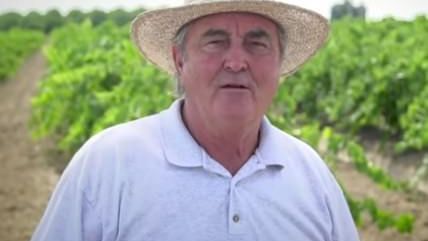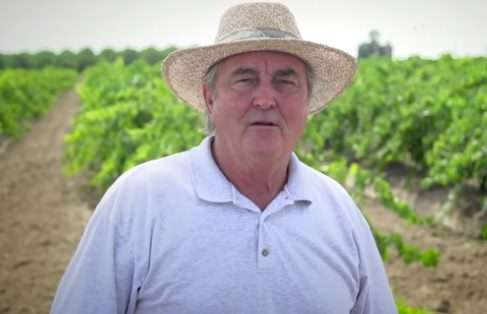Raisin Farmers Fight for Crop Control
Supreme Court hears case of USDA agricultural takings.


Like characters in a Sergio Leone Western, government programs fall into three main categories: the good, the bad and the ugly. The program under inspection Wednesday at the Supreme Court fell squarely in the last category.
Many consumers like to eat raisins, and some farmers like to grow the grapes that are dried to make raisins. In a normal commodity, producers would produce as much or as little as they chose and then sell it to willing buyers. But raisins are anything but a normal commodity.
During the Great Depression, the government decided that prices paid to farmers were too low and undertook to correct the problem by limiting their output. Though that was an understandable response to the worst economic crisis in our history—not sound, but understandable—it has long outlasted the calamity that gave rise to it.
Today, the United States Department of Agriculture still assumes the task of deciding how many raisins should be sold—a job that in most markets is handled by consumers and producers continually responding to supply and demand.
When demand for product X goes up, for instance, prices rise, which induces consumers to buy less and producers to produce more, which in turn lowers prices. When demand falls, the reverse occurs. This system works so well that we rely on it for the vast majority of the things we need.
But not for raisins. For a long time, Marvin and Laura Horne grew their Thompson seedless grapes, which are dried to make raisins, and then did something unnatural: They kissed a lot of them goodbye. This was not by choice, but compulsion. They were required to give a share of what they grew to the government.
As one federal appeals court helpfully explained, "In order to participate in the world of raisin marketing, growers must surrender a portion of their crop as an entrance fee." Some years it's been 15 or 20 percent of their raisins; some years it's been nearly half. Some years, the government has paid farmers something for the produce, and some years it hasn't.
Dissatisfied with this forced arrangement, the Hornes decided to circumvent it by acquiring equipment to process their raisins and those of other farmers near Fresno, Calif. By becoming "handlers," they figured they would be excused from forfeiting part of their crop. But when they sold the raisins, the USDA slapped them with a fine of nearly $700,000.
So they sued for the simple right to farm raisins without carrying this onerous burden. The Hornes' lawyers argued that by confiscating much of their crop, the USDA violated the Fifth Amendment to the Constitution, which says private property may not "be taken for public use without just compensation."
This "takings" clause is what forces your state or local government to pay you fair market value if it wants to raze your house to build a highway or seize your land for a sewage treatment plant. The compensation requirement is a venerable bulwark against a grabby government.
But the USDA thinks the prohibition applies only to farmers' land—not the fruits of their labor. If that's true, argued the Hornes' lawyers, it implies the government "can take away one's car, furniture, refrigerator, books, silver and clothes" at its whim.
The Raisin Administrative Committee, which operates under supervision of the USDA, sells or gives away the raisins it takes, with the proceeds going to cover its operating costs, storage fees and promotional efforts abroad. If any money is left, the farmers get some of it. If not, they receive a heaping bushel of air.
You may argue that the entire program is a good deal for farmers, because it keeps prices up. In that case, you have to admit it's a bad deal for consumers, because, well, it keeps prices up. Regardless, it's a grievous affront to farmers who would like to pursue their lawful livelihood without being subject to annual confiscations.
The Hornes somehow don't see this system as a sophisticated and benevolent mechanism to help raisin farmers. They regard it as "stealing," as well as "a tool for grower bankruptcy, poverty and involuntary servitude." Marvin Horne told The Washington Post, "It's like being a serf."
He and his wife don't have to be told of the dangers of growing government forecast in Friedrich Hayek's 1944 book, The Road to Serfdom. The question for the Supreme Court is whether the road should have an exit.


Show Comments (15)